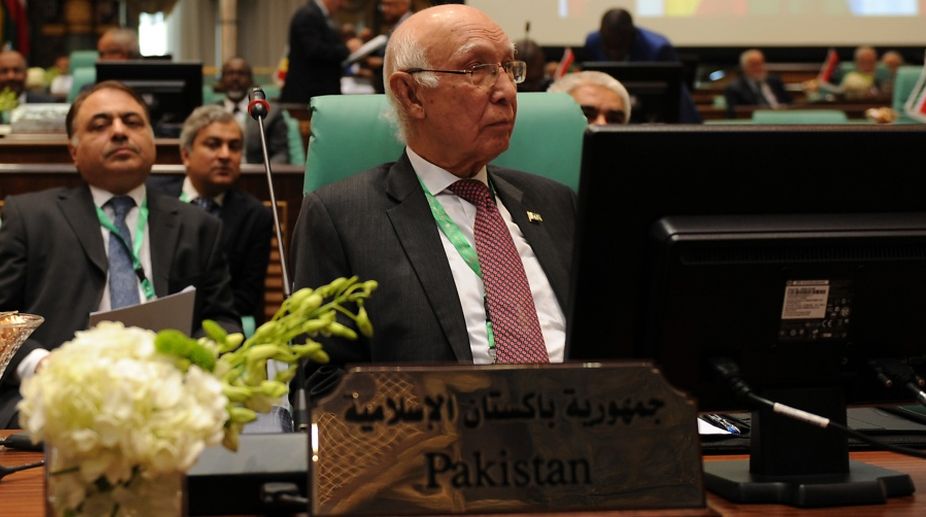India has always stood by Maldives: Jaishankar
External Affairs Minister S Jaishankar on Friday said India has always stood by the Maldives, adding the Indian Ocean archipelago is a concrete expression of New Delhi's ''Neighbourhood First'' policy.

Sartaj Aziz (Photo: AFP)
Pakistan is determined to counter growing threats to peace in the Indian Ocean, particularly from its "nuclearisation" by India, Foreign Affairs Adviser Sartaj Aziz said.
Aziz on Saturday said the Indian Ocean faced challenges to peace due to its militarisation, proliferation of weapons of mass destruction, increased missile capabilities and power projection by foreign militaries, Dawn online reported.
Advertisement
The foreign affairs advisor also listed piracy, illegal fishing; human, drugs and arms smuggling; maritime pollution and climate change as major problems.
Advertisement
"This trend is likely to intensify in the coming years," he warned at the 'International maritime conference on strategic outlook in Indian Ocean region, 2030 and beyond — evolving challenges and strategies'.
"We are aware of our national interests and every effort will be made to strengthen our capacity to ensure that we remain ready to meet the emerging maritime security challenges. For us, to remain oblivious of the developments taking place in the Indian Ocean region is not an option."
Aziz said nuclearisation of the Indian Ocean had further destabilised the region.
It was in Pakistan's vested interest that the region remained peaceful as 95 per cent of the country's trade took place through sea and it had over 1,000 km long coastline, an Exclusive Economic Zone of around 300,000 sq km, the Karachi port and the newly built deep sea port of Gwadar.
He said the Indian Navy's substantial expansion was a cause of concern for Islamabad. "Pakistan has a strategic stake in the peaceful navigation and security of the Indian Ocean region."
"We realise the economic potential of the region. As the third-largest ocean providing coastline to more than 30 countries, the Indian Ocean provides connectivity not only to important regions in Asia, particularly South Asia and the Middle East, and Africa, it also connects Australia with Europe. Regular dialogue between stakeholders on security and safety have never been so important."
He said an estimated 55 per cent of oil reserves of the world and 40 per cent of gas were located in the region.
"Today, some 40 per cent of the global trade passes through the Indian Ocean. With the rise of Asia as the global powerhouse, the region indeed offers the unique platform for the globalised world as an attractive trade route. At present ports in the Indian Ocean handle about 30 per cent global trade and half the world's container traffic. But the establishment of a new system of routes and ports will further increase the economic importance of this ocean," he said.
Aziz said the Indian Ocean region was not all about war.
"It is a catalyst for peace and prosperity, cooperation, collaboration, connectivity and stability and security."
He suggested that Pakistan, taking advantage of the China-Pakistan Economic Corridor (CPEC), should begin working on two supplementary corridors.
"There should be a corridor connecting Pakistan to West Asia and Africa. The West Asian corridor could go by Iran to Central Asia and Moscow and via Iran and Turkey to Europe and a second corridor would pass through or around the Gulf region and penetrate into Africa," he said, pointing out that Africa in particular was an upcoming continent with lots of potential.
Advertisement